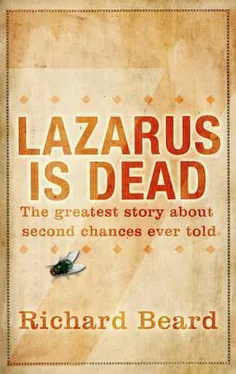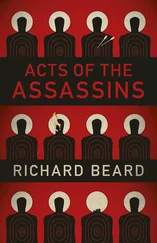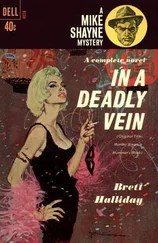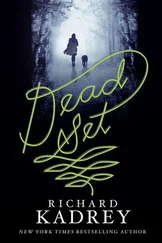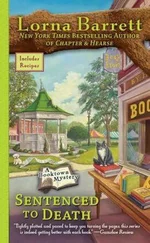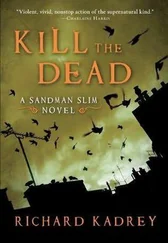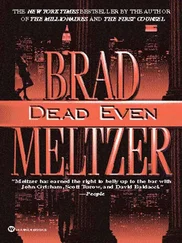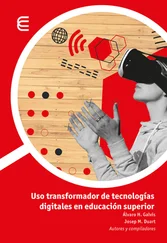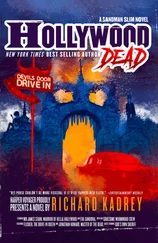Slowly at first, as if at any moment they might change their minds, the Sanhedrin priests begin to cover their noses. Not all of them, but nearly enough. Caiaphas looks at Isaiah, who returns his gaze. Caiaphas does not look away until, with obvious reluctance, Isaiah gathers up the front of his tunic, and presses it over his nose.
‘Kill him?’ someone asks.
The priests with covered noses nod their heads.
‘Kill him.’
‘Kill Lazarus.’
4
The Bethany tombs blacken the afternoon brightness like broken teeth. Every stone door has been rolled back or smashed, leaving dark arched gaps the length of the sunny escarpment.
Resurrection is a wonderful idea. Everyone agrees on that, but only Lazarus has risen up. The stench of rotting bodies settles beneath the breeze from the desert. No wonder so many people in Bethany are covering their noses.
Lazarus flattens his back against a rock. Caiaphas had explained that the Temple guards were a precaution, for his own protection. They are stationed outside his door, so they missed his escape when he jumped from the roof. He is now alone, but feels someone is watching. Lizards skit like quick beige sticks. He should turn back. He can run to the village whenever he wants.
He jogs over to his tomb, hesitates at the open entrance, peers inside.
The rear wall is dark. A hand reaches out and Lazarus leaps backwards. A beggar with no teeth hustles towards him on one knee, smiling the red of his gums, but stops at Lazarus’s footprints. He wipes up the dust and sucks his fingers.
‘Get out! Go away!’
The man bows low. He touches his forehead to the ground. Lazarus is confused, but then it comes, the edge of euphoria he’d been expecting earlier. This man is a beggar, but he knows. Lazarus is the one.
Lazarus waves his arms and shouts out loud. He aims a kick that makes the beggar scuttle out of range. He picks up a stone and throws it, because he can.
‘And don’t come back!’
Then he plunges into the coolness of the tomb, where he listens to his living heart. Even here, where no one can see him, he feels he is being watched.
The tomb is part of the Bethany tour.
Follow the signs from the bus stop, walk past the gift shops and the house that is most likely not The Home of Lazarus Martha and Mary . Keep going. Further up the hill, in the lower half of a wall on the left-hand side of the road, is the narrow entrance to the tomb. There is no wheelchair access.
In Lazarus’s time, this would have been a natural escarpment, but efforts over the centuries to keep his story alive have contributed the road and the al-Uzair mosque, built directly over the tomb. On either side of the mosque stand two churches, one Roman Catholic and the other Greek Orthodox. These additions are not relevant to the central experience.
The tomb remains a cave cut into the rock, a man-made underground space. It is one of the better tombs, with two levels, and when Mark Twain visited in 1869 he said, ‘I had rather live in it than in any house of the town.’
Lazarus paid for an upper and a lower chamber. Seven steps descend steeply to the lower section, which is grey-black with the limited light that filters down. Lazarus steadies himself with a hand against the rough-cut wall. There is a strong smell of spices, of excess aloe and myrrh.
He waits for his eyes to adjust, tries to remember the events enacted in this place. He is searching for clues. Where did he go? How did he get back?
It is the smell that tugs at his heart. He closes his eyes to capture a memory as faint as the memory of a dream, but thinking doesn’t feel as if it’s going to work. Logic isn’t the mechanism to grasp the truth of whatever happened here.
He sits on the lowest step, squeezing the bridge of his nose between his fingertips. No. Nothing.
He pinches some dirt from the floor, granulates it between his fingers. A noise. Someone has entered the upper chamber.
‘Go away! I told you not to come back!’
Lazarus fixes his eyes on the entrance above. A shadow on the step, then the shape of a man. It dips at the waist and dives straight at him.
In Bethany, the tourist trade was founded in 33 CE, on the day visitors arrived in search of Lazarus.
Yanav organises the daytrippers into an eager bustle of customers. ‘Don’t push at the back!’
This explains why Lazarus is alone and vulnerable at the tombs. Visitors to Bethany already have secondary attractions in the square, like the thrill of bartering for Lazarus’s blood.
‘Drink it as it is!’ Yanav suggests. He makes his pitch while holding a clear vial of blood to the light. ‘Or make a compress to wrap an injury. Drip it onto salt or sugar and feed it to your children! I promise you, the blood of Lazarus will keep them safe.’
Or if they can’t be tempted by blood, Yanav has a stock of recent fingernails. He can vouch that he was personally responsible for cutting a supply of hair from the head of Lazarus himself.
‘Burn it in the rooms of the dying. Bring solace and some extra days to those who you do love.’
Lydia has enough memories without buying offcuts from his body. She is desperate to see how Lazarus has changed. An experience like this will have changed him, and she is prepared for the worst, for the Sholem Asch expectation of a contented Lazarus with ‘the wise, gentle smile of one who had penetrated all secrets and had come through to peace, the smile of one who had looked into the face of Death, and conquered him’ ( The Nazarene ).
If Lazarus has solved the ultimate mysteries then Lydia doubts that she’ll be needed. They will never be together, she has already accepted that, but one last time she wants to see him for herself.
Baruch pins Lazarus face-down to the ground like an animal for branding. He presses the cold blade of his knife flat behind Lazarus’s ear.
‘Not again,’ Lazarus grunts. He struggles but makes no progress. ‘Yanav, get off me. You know I want to live.’
Baruch makes a fighter’s calculation. Lazarus has light-weight bones, and not enough muscle to surprise him.
‘What is beyond?’ he hisses.
Lazarus stops moving. He doesn’t recognise the voice.
‘Lazarus, my friend, tell me what is beyond. If you do, I’ll make the killing quick.’
‘I don’t know.’ His voice is muffled by the inside flesh of his cheek crushed between his teeth. Baruch pulls his head up by the hair. ‘If I knew I’d tell you.’
‘Tell me, or you’ll wish you stayed dead.’
‘Wait! There is something!’
‘What? What is there?’
‘I don’t know what. I can’t remember. But there must be something, or I wouldn’t be here.’
‘You’re a liar.’
‘I’m not a liar.’
‘You’re a well-known liar. You say you came back from the dead.’
‘I never said that.’
‘And now what? You think you’re going to live forever?’
Lazarus suddenly decides he’s had enough. Sickness couldn’t kill him. Yanav didn’t drown him. The beggar bowed down before him. Whoever his attacker is, he is outrageously ignorant of destiny.
‘What are you waiting for?’ Lazarus says. ‘Kill me. Find out how long I have to live.’
With the boy in the forest Baruch had fumbled his knife, a basic error he wouldn’t usually make. This time he’s allowing Lazarus to speak. Nothing is as it was.
‘How did you keep your scheme a secret?’
‘Kill me.’
‘Where did you hide the food?’
‘You can’t do it, can you? I frighten you.’
‘I can do it. If you don’t like it, just come back.’ Baruch leans forward so that his lips are close to the heat of Lazarus’s ear. ‘God’s wrath is coming. Here is god’s wrath, today.’
Читать дальше
